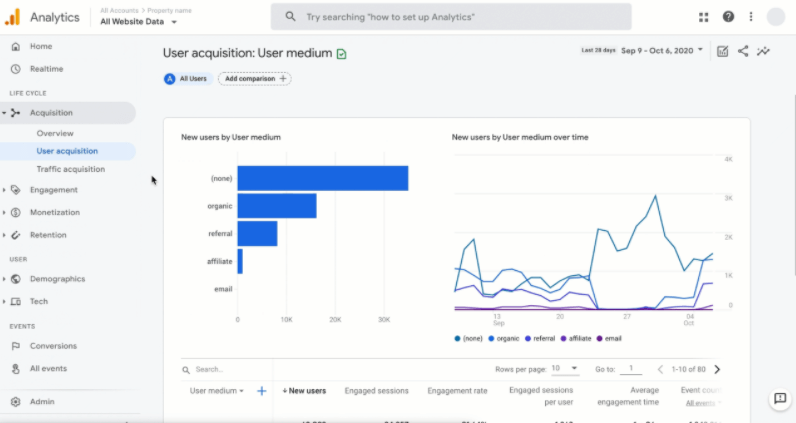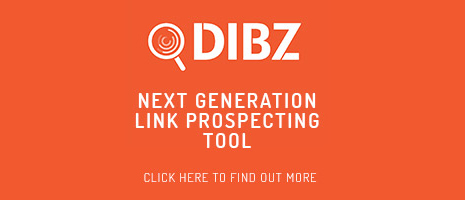Digital Marketing Week in Review by Four Dots: October 2020, Week 3

Hello and welcome to another edition of Digital Marketing Week in Review by Four Dots – our weekly column where we comb through some of the most relevant news and events that took place within the digital marketing landscape over the last week or so.
Let’s see what “October 2020: Week 3” edition brings us:
- New WordPress Feature Doesn’t Get The Expected Feedback (To Say The Least)
- Upcoming Google AI Search Updates May Influence SEO Best Practices & Rankings
- A Look at Google Analytics 4 – Google’s Future of Advanced Analytics
- Instagram Announces a New Approach to Managing Influencers’ Sponsored Posts
- Facebook & Instagram Don’t Support Embeds For WordPress Anymore
Alrighty then, let’s dive right in!
New WordPress Feature Doesn’t Get The Expected Feedback (To Say The Least)
WordPress has recently announced the roll-out of a new feature that should allow publishers to publish blog posts on Twitter in the form of a tweetstorm. And though the website owner community welcomed the news with enthusiasm at first, the feedback quickly changed as potential negative implications of this feature started to emerge.
The main idea behind the new tweetstorm feature was to provide a brand new way for publishers to promote their content and reach new audiences. Most typically, this type of content promotion involves bringing audiences from a target platform to your own blog and website.
However, this apparently wasn’t the case with the new feature as it turned out the end goal was actually to provide Twitter with free content, and there were no details provided about how exactly it would benefit the publishers. The feature would basically tweetstorm entire articles from a WordPress website to Twitter, with almost no need for a user to visit the original content.
The Response from the WebmasterWorld
It didn’t take long for publishers to start asking: But what’s in it for me?
The WebmasterWorld community soon detected the inherent problems with the new WordPress feature and the first response found within one of the WebmasterWorld discussions was fun and fairly sarcastic:
“Wow that is awesome, now you can post your entire content on Twitter and your users will have all of it there, available to them without ever needing to leave the platform. As a result your likes will go way up, and your follower count will rise too, what more could anyone ever ask for…!”
Other reactions started pilling up, with a couple of official responses coming from WordPress as well.
You can find detailed coverage of the community reactions and responses in this SEJ article, as well as more information on how to use this new WordPress feature to your advantage.
Upcoming Google AI Search Updates May Influence SEO Best Practices & Rankings
Google, yet again, announced upcoming changes in its search AI that may cause a substantial impact on future search results. Some of the updates have already been implemented, while other changes should be live by the end of the year.
According to our colleagues over at Search Engine Journal, the announced search algorithm updates are likely to introduce more diversity in the search results. These changes, however, may also create a more difficult environment for SEOs.
Some of the updates include:
- Google BERT is now deployed in nearly 100% of searches
- A spelling algorithm aiding Google in better understanding misspelled searches
- Google will now start indexing passages within a web page, not just the web page itself
- Introducing search subtopics
- New techniques that use AI to understand the different passages within videos
…and more.
To better understand these updates and how they may influence your SEO efforts now and in the near future, we strongly suggest reading this detailed SEJ article tackling this topic.
A Look at Google Analytics 4 – Google’s Future of Advanced Analytics
Google has recently unveiled “Google Analytics 4”, an updated version of its analytics machine learning-based engine that should improve monitoring/tracking key data trends, as well as inform publishers, marketers, and business owners about new opportunities.
The new property type provides users with:
- a better Google Ads integration
- expanded predictive insights
- cross-device measurement capabilities
- customer lifecycle-framed reporting
- codeless Event tracking
- analytics in a cookie-less future
- more granular data manipulation.

(Image Source: Search Engine Land)
The upgraded Google Analytics property should give publishers and SEOs a much clearer, wider, and deeper cross-channel overview of the customer lifecycle metrics and help them make better and more data-driven decisions based on these new levels of user-based insights. More information about GA 4 available in this SEL article.
Instagram Announces a New Approach to Managing Influencers’ Sponsored Posts
In light of a recent investigation conducted by the UK Competition and Markets Authority, Instagram has promised to implement new ways of making influencers’ commercial posts more transparent in order to protect consumers.
In many countries, including the UK, influencers are obliged to openly disclose any commercial relationships associated with their sponsored posts by tagging commercial arrangements using #ad or #sponsored hashtags.

(Image Source: Social Media Today)
However, the CMA has revealed that many of them conveniently avoid doing so, which could result in Instagram being sued. This is why this social media network has promised to tackle this issue in 2 different ways:
- Instagram will be adding a new prompt that obliges influencers to disclose whether or not they are receiving incentives to promote a product or service before they can publish their post
- Instagram is also looking to develop new algorithms that would detect any potentially commercialized content and – should they find any – alert and inform the relevant company about the platform rules regarding the said post(s)
The issue with influencers not being transparent about which of their posts are benefiting them directly via commercial channels has been present for years now. We’ll see if these new events are capable of speeding up the process.
Facebook & Instagram Don’t Support Embeds For WordPress Anymore
Starting October 24, Facebook and Instagram are no longer supporting embedded content on WordPress sites.
The new API update is removing support for Facebook and Instagram embeds that haven’t been authenticated, which means that embedded content is only supported for those who have a Facebook developer account and/or a registered Facebook app.
What’s also interesting is that this update will have retroactive effects, meaning that all Insta and Facebook embeds located on unauthenticated sites will become broken on October 24, potentially affecting millions of websites.
Since not all publishers are capable of meeting these new Facebook embed content requirements, and as registering one’s Facebook app or creating a Facebook developer account isn’t too practical a solution, many will have to wing it. For now.
Wrapping Up
That would be all for this installment of Digital Marketing Week in Review by Four Dots. See you next week, until then – feel free to check out our previous edition!


 SEARCH
SEARCH

 Disqus
Disqus GooglePlus
GooglePlus